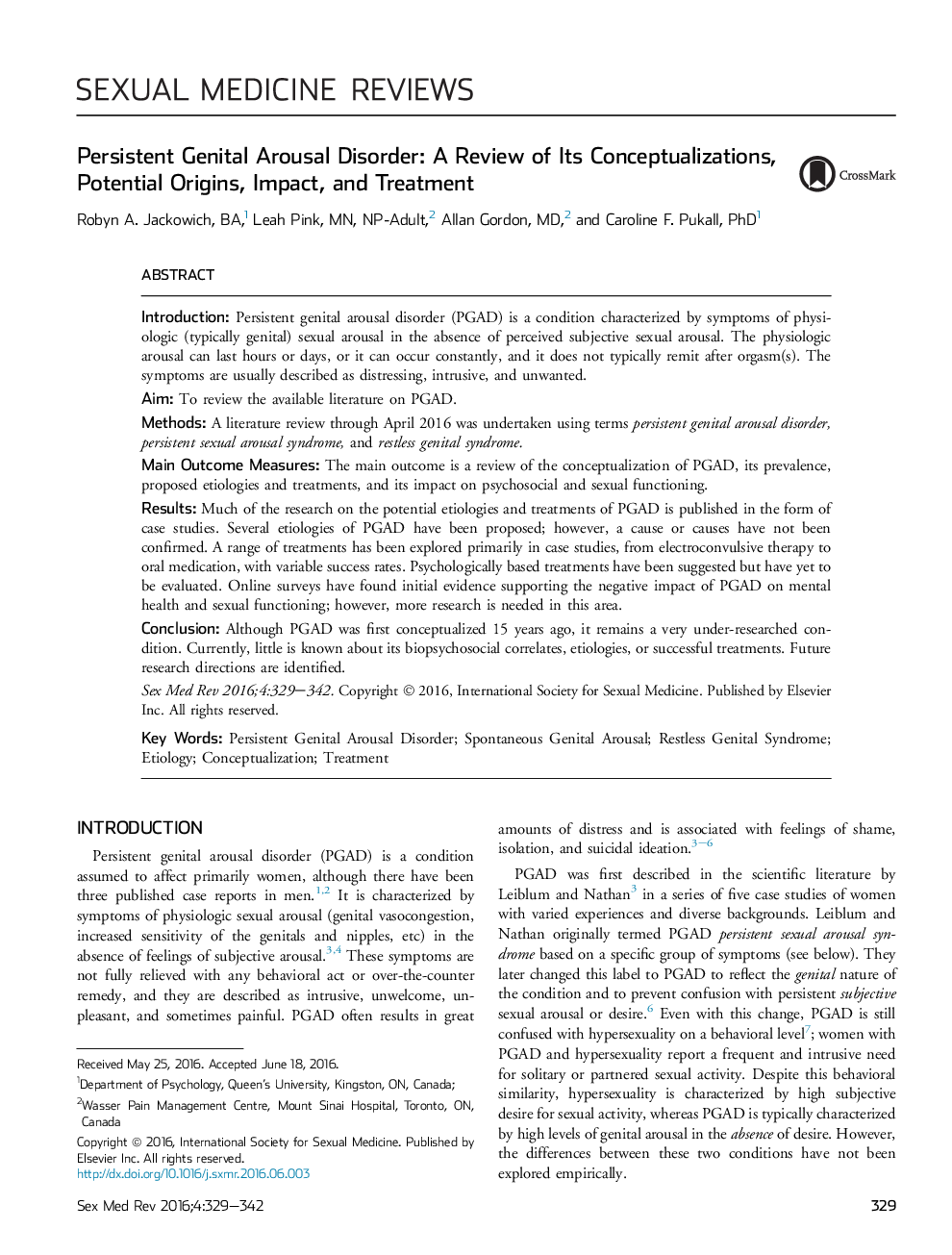| Article ID | Journal | Published Year | Pages | File Type |
|---|---|---|---|---|
| 4274634 | Sexual Medicine Reviews | 2016 | 14 Pages |
IntroductionPersistent genital arousal disorder (PGAD) is a condition characterized by symptoms of physiologic (typically genital) sexual arousal in the absence of perceived subjective sexual arousal. The physiologic arousal can last hours or days, or it can occur constantly, and it does not typically remit after orgasm(s). The symptoms are usually described as distressing, intrusive, and unwanted.AimTo review the available literature on PGAD.MethodsA literature review through April 2016 was undertaken using terms persistent genital arousal disorder, persistent sexual arousal syndrome, and restless genital syndrome.Main Outcome MeasuresThe main outcome is a review of the conceptualization of PGAD, its prevalence, proposed etiologies and treatments, and its impact on psychosocial and sexual functioning.ResultsMuch of the research on the potential etiologies and treatments of PGAD is published in the form of case studies. Several etiologies of PGAD have been proposed; however, a cause or causes have not been confirmed. A range of treatments has been explored primarily in case studies, from electroconvulsive therapy to oral medication, with variable success rates. Psychologically based treatments have been suggested but have yet to be evaluated. Online surveys have found initial evidence supporting the negative impact of PGAD on mental health and sexual functioning; however, more research is needed in this area.ConclusionAlthough PGAD was first conceptualized 15 years ago, it remains a very under-researched condition. Currently, little is known about its biopsychosocial correlates, etiologies, or successful treatments. Future research directions are identified.
